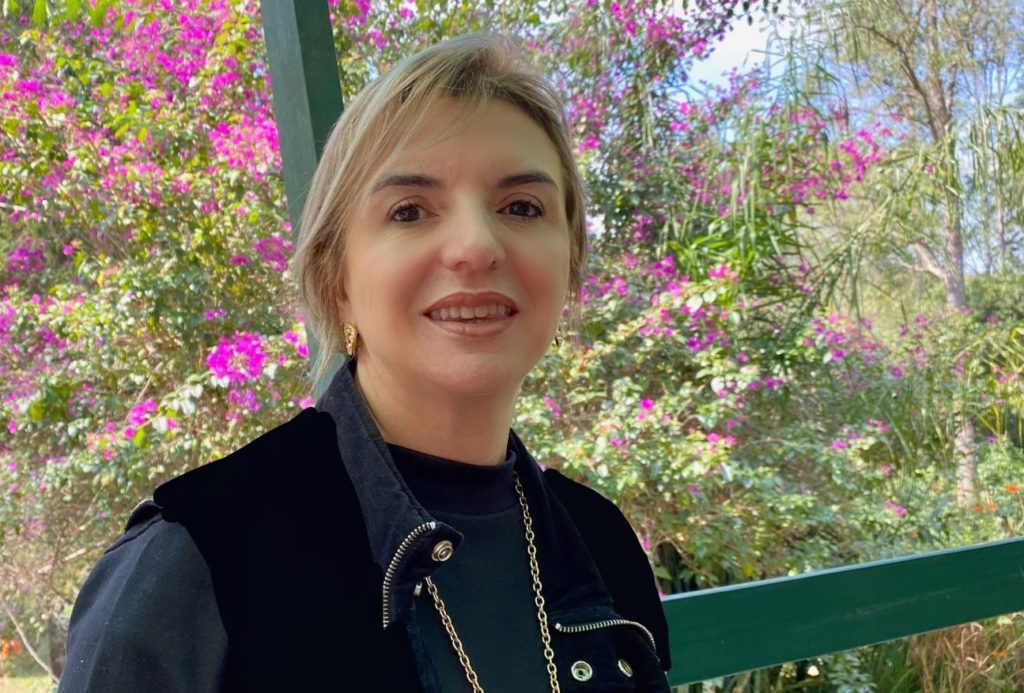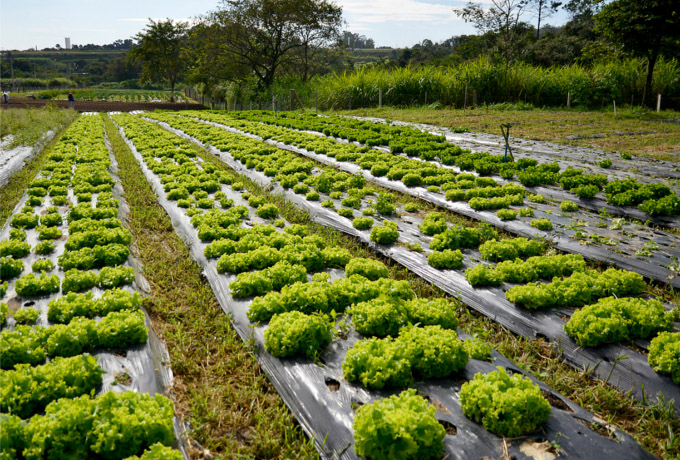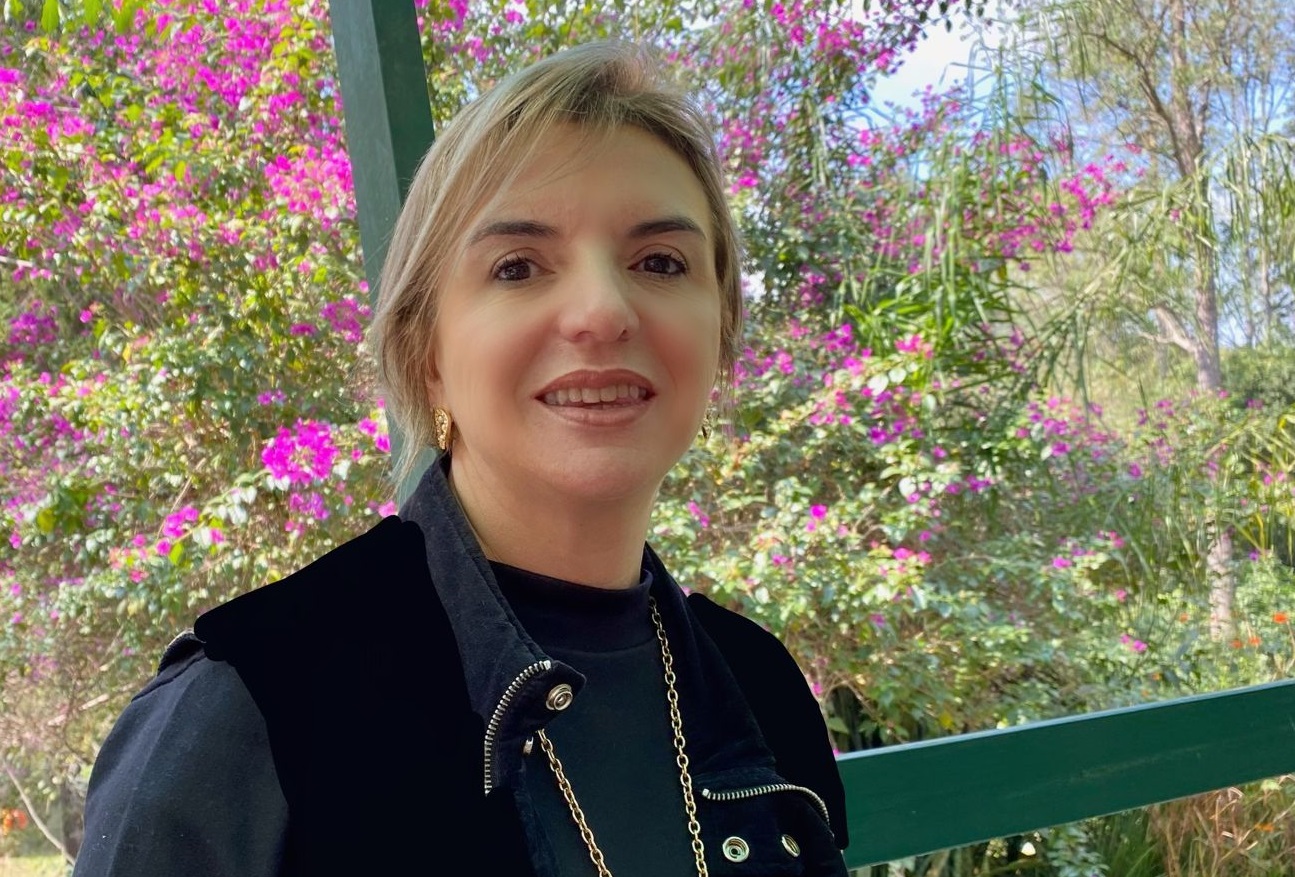Nutritionist Maria Angela Delgado tells how Jundiaí, in Brazil, became a national reference for school feeding
Paulo Beraldo
Jundiaí, a city located a few kilometers from São Paulo, in Brazil, is a national reference when it comes to school feeding. This is due to the organic production of food, the implementation of dozens of school gardens and the use of Non-Conventional Food Plants (PANC) in meals produced daily for students.
The municipality has about 430,000 inhabitants and more than 63,000 students enrolled in state and municipal public schools. They are served daily with food and vegetables grown in the Vale Verde (Green Valley) organic garden. There are 15 thousand square meters of arable area in a work that has already been certified by the International Agricultural Organization. In this garden, there is a space of 4,500 m² dedicated exclusively to the PANC production, which has been multiplied by schools in the city through the Inova na Horta project. An innovative experience that earned the city international recognition.

“It is one of the largest organic gardens in Brazil, supplying the city’s municipal and state network”, says nutritionist Maria Angela Delgado, director of the Department of Food and Nutrition, which is part of the Education Management Unit from Jundiaí. All schools receive products such as lettuce, cabbage, carrots, beets, in addition to PANC products such as vinegar, ora-pro-nobis, chaya, among others. “The products change according to the time of year”, explains Delgado.
The project, under the technical coordination of Instituto Kairós, stimulated the production of PANC in schools and trained managers, technicians and those responsible for these spaces in schools on topics such as the implementation of gardens, the production of PANC, education and healthy consumption, how to insert these plants in recipes, among other topics. Delgado highlights the leading role of cooks in Jundiaí – there are about 500 of them in the city, who are part of the education team and participate in continuing education.
In Jundiaí, PANC serves as ingredients in existing recipes, capable of enriching them, adding flavors and valuing the rich local and regional biodiversity. “We can add them to beans, fries, rice, omelets, salads. They are very versatile and rich in different nutrients”, says Delgado.
PANC and vegetables are successful with the little kids due to the planned and successful work of food introduction. “Children eat radishes like they would prove an apple, and this is a food that sometimes even adults are resistant to.”
In early childhood education units (day care centers), more than 90% of vegetable consumption comes from the Vale Verde garden. In the rest of the schools, the amount is close to 70%. Vale Verde is open to students, who make visits and can get closer to food production and get in touch with the 11 farmers who take care of the place. “Without these heroes we would have nothing. It is essential that children learn from an early age to value agriculture and farmers”.
For Delgado, the school garden is a universe of possibilities for different types of learning, and it is one of the most powerful and effective tools for food and nutrition education available. “It promotes greater concern and awareness about food production, about the environment and generates healthier living habits”, she evaluates.

“By learning about cultivation in the garden, students also understand more about a varied diet and how to value natural and locally produced foods, and take this experience to their families”. The management objective is that by 2023 all municipal schools will have their own school gardens.
Asked what explains Jundiaí’s success, the nutritionist doesn’t think twice: “It was a construction and we were lucky to have managers who believed and listened to nutritionists and the technical team of school feeding over the years,” she replies.
Today, the city has about 140 public schools and 84 municipal schools have school gardens. With more than 30 years of experience in the sector, Delgado states that schools are fundamental spaces not only to promote food security, but also to contribute to the development and health of children. For this, she believes that educating with a focus on nutrition is crucial to fostering a generation with healthier habits, aware of their food choices.



